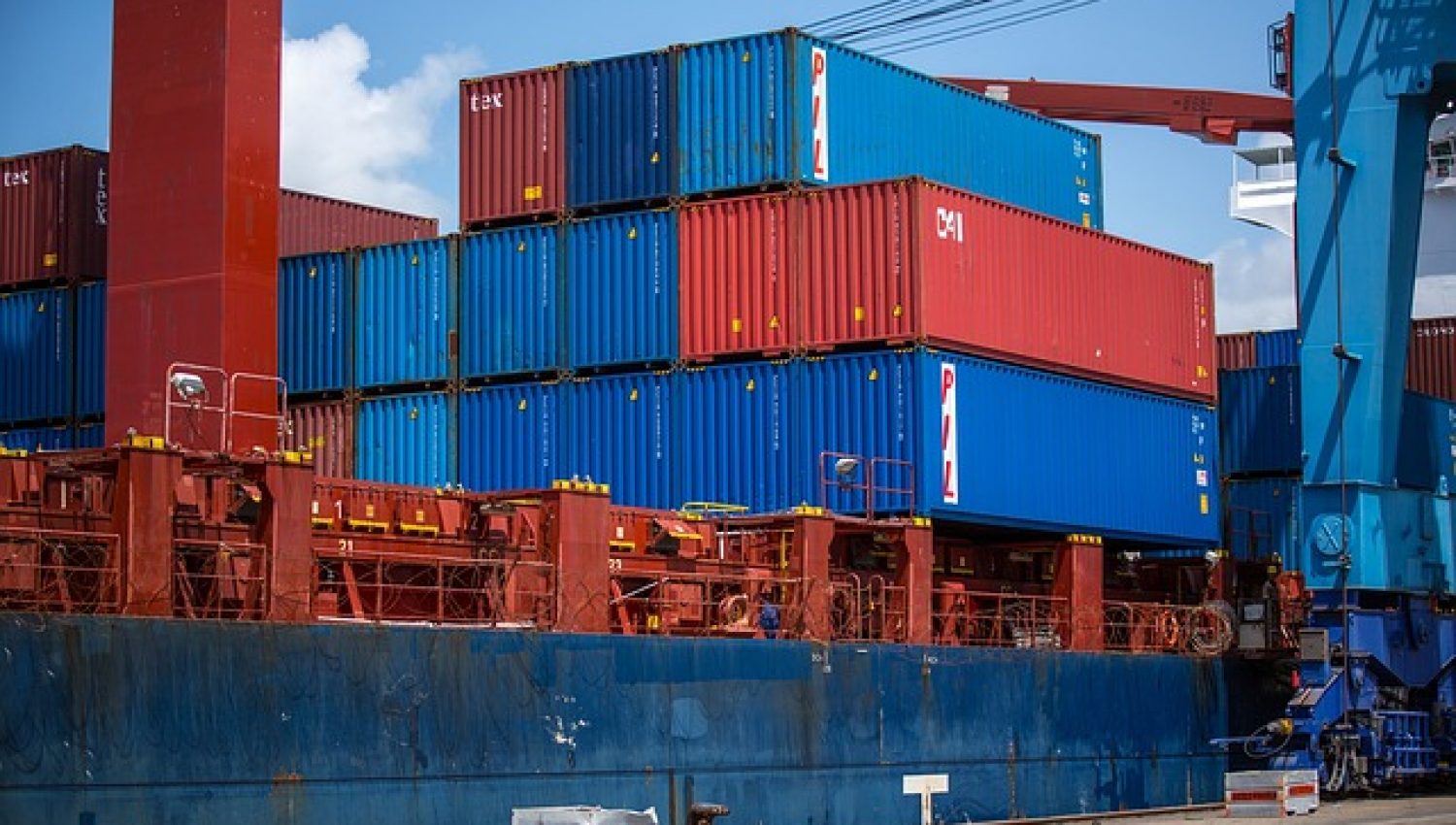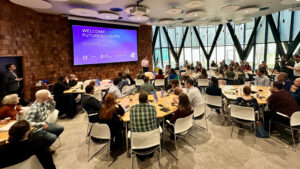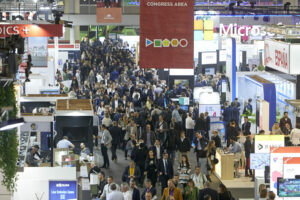

18th December 2018
Launch of North East Smart Ports Testbed
New digital technology project that aims to work with ports and smart suppliers in North East England
A new initiative that aims to pilot smart digital initiatives to boost trade and foster economic growth in North East England’s ports has been launched.
Digital and industry experts, academia, regional authorities and the Port of Berwick, Port of Blyth, Port of Sunderland, Teesport and Port of Tyne will seek todevelop distinct satellite-based solutions and digital programmes as part of the Smart Port North East Testbed.
The initiative was developed by Urban Foresight on behalf of the North East Satellite Applications Centre of Excellence as part of a ground breaking open innovation programme to use space technology and satellite data to tackle significant societal challenges..
North East England is an ideal location for the testbed, with the local economy strongly connected to the ports and a tight-knit business community acting as the perfect catalyst for collaboration. The North East also boasts a strong and growing space cluster, driven by the North East Satellite Applications Centre of Excellence, operated by Business Durham, the economic development organisation for County Durham, and based at the region’s only dedicated technology park, NETPark in Sedgefield.
Catherine Johns, Innovation Director at Business Durham said: “Ports play a vital role in the regional and national economy, providing trading gateways to the rest of the world, with a massive impact on local supply chains and communities.
“The test bed provides an opportunity to pool the knowledge built up in one of our longest established industries with that of one of our newest.”
The digitisation initiative will aim to test scalable satellite-based smart solutions that will work within a large programme of measures towards achieving four key outcomes for the ports: new business opportunities and hinterland engagement; boosting the growth of green energy and low carbon solutions; improved customer experiences; operational excellence and security in and around the port.
Benefitting from its position of the Northumberland Coastal Area of Outstanding Natural Beauty, Port of Berwick will trial smart solutions to enable closer collaboration between the port and its hinterland, including boosting the local economy through a greater focus on tourism.
Home to the UK’s first offshore wind farm, EDF’s Blyth Offshore Demonstrator Wind Farm and the Offshore Renewable Energy Catapult, Port of Blyth has developed an internationally significant hub of renewable energy, offshore and subsea companies based in and around the port. Their focus therefore as part of this initiative will be to explore technological advancements suitable for servicing the renewable and green energy sectors.
Understanding expectations of the port’s freight clients, many of whom are Scandinavian based and striving to meet the highest standards in sustainable practices, Port of Sunderland will aim to pilot solutions to improve operations, processes and transparency and lead on improved customer experience.
As the largest port in the region, Teesport (operated by PD Ports) is looking to test solutions to boost operational efficiency in logistics and warehousing processes, moving cargo from the port area to supply chains and wider logistics networks as efficientlyas possible. Teesport operates nine weekly sailings to Rotterdam (NL) and Zeebrugge (BE)per week, and knowledge from the Innovation Dock at Smart Port Rotterdam will be used to help inform identification of solutions and applications across the North Sea in the North East of England. As such it will lead on operational efficiency initiatives, together with Port of Tyne. The only passenger ferry service from the North East to mainland Europe sails from Port of Tyne on the daily Newcastle to Ijmuiden (NL) route, operated by DFDS. Passenger safety, security and efficiency is an integral part of the user experience at the port.
The test bed will examine technologies such as artificial intelligence, data analytics, unmanned marine vessels, and airborne drones to enable ports to become more “intelligent” and examine ways of speeding up trade, increasing efficiency and reliability, reducing costs, tracking cargo, improving security and protecting the environment.
This innovative test bed and the use of new technologies will make a valuable contribution to the development of the next generation of ports, for trade, economic growth and the environment.
More Stories


Systems change and community building for a net zero future

Urban Foresight at the 2023 Smart City Expo World Congress

Urban Foresight to lead national net zero accelerator programme

Developing sustainable tourism in Cambodia


![cyberessentials_certification mark_colour [12] cyberessentials_certification mark_colour [12]](https://urbanforesight.org/wp-content/uploads/elementor/thumbs/cyberessentials_certification-mark_colour-12-pnvwipr8zh5rhqz25vzzioz2x8t2zltvu0gwqv4000.png)
